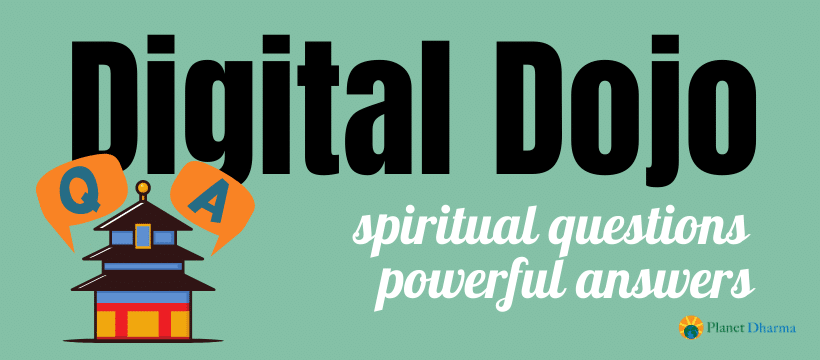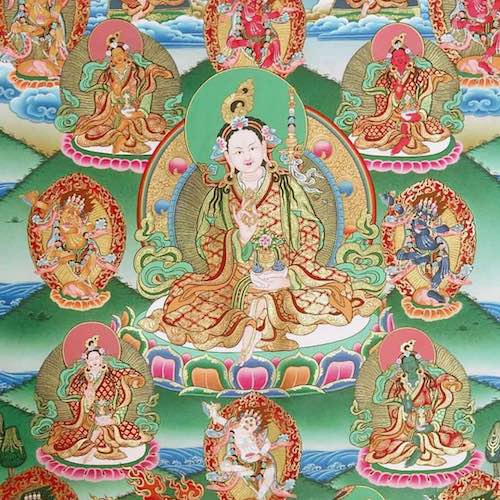Browse Schedule by Category: Retreats / Online Courses
Public Classes

Buddhist Contemplative Care for End of Life Speakers Series
Watch the RecordingLife, Death and Rebirth BardosHear Doug Qapel Duncan and Catherine Pawsarat Sensei speak on the life, death and rebirth bardos, from the point of view of Vajrayana Buddhism. This talk was hosted by Emmanuel College of Victoria University in the University of Toronto, on February 6th 2021. Link to the livestream available here: Vajrayana Buddhism and the Life, Death and Rebirth Bardos.Original Event details: Join Doug Duncan and Catherine Pawasarat for a conversation on Buddhist views of death and dying. Focusing on perspectives unique to their lineage they will share about death related caregiving and to illuminate specific practices (e.g., rituals, key texts, etc.). Additionally, they will reflect on how the relatively recent adaptation of Buddhism to Canada and the West has created frictions and creative adaptations to this ancient tradition. This speakers series, cosponsored by Emmanuel College’s Centre for Religion and Its Contexts, the Toronto Centre for Applied Buddhism and the Buddhist Education Foundation of Canada, is a pioneering effort to provide a platform for Canadian teachers from the three main traditions of Buddhism to address contemplative end-of-life care. Over the past fifty years, Canadians from many walks of life have become interested in Buddhism, including growing numbers of committed practitioners and students, as well as those whose curiosity has been piqued about how Buddhist wisdom can be applied to life challenges. This rich spiritual and philosophical system provides unique insight into the perennial questions: What is a “good death?” How can I support myself and my loved ones during this […]

Enlighten-Up!
This month's topic is: The Antidote to Anxiety - How the ancient Buddhist practice of merit generation is applicable to your life more than ever. Enlighten-Up is a series of uncompromising, unflinching and kick-ass dharma classes. Join online from anywhere in the world.

Digital Dojo: Spiritual Questions, Powerful Answers
Digital Dojo is a virtual question and answer session. Asking questions to spiritual mentors is a powerful and traditional method of learning. You're invited!

Enlighten-Up!
Uncompromising, unflinching and kick-ass dharma classes. Vajrayana Teachers Doug Duncan and Catherine Pawasarat present a new topic each month. Join online from anywhere in the world.

Digital Dojo: Spiritual Questions, Powerful Answers
Digital Dojo is a virtual question and answer session. Asking questions to spiritual mentors is a powerful and traditional method of learning. You're invited!

Death and Rebirth: Enlighten-Up!
Uncompromising, unflinching and kick-ass dharma classes. Vajrayana Teachers Doug Duncan and Catherine Pawasarat present a new topic each month. Join online from anywhere in the world.

Digital Dojo: Spiritual Questions, Powerful Answers
Digital Dojo is a virtual question and answer session. Asking questions to spiritual mentors is a powerful and traditional method of learning. You're invited!

Women & Buddhism: Enlighten-Up
Women & Buddhism: Stories of the 17th Arhat, female gurus and what it means for us today. Enlighten Up is a monthly series of uncompromising, unflinching and kick-ass dharma classes. Join online from anywhere in the world.

Buddhist Women in the 2020’s (Introduction)
While there may be frustration, grief and rage about historical gender inequity in Buddhism, we can use Buddhist methodologies to transform these conflicting emotions into greater compassion and wisdom. Join Catherine Pawasarat Sensei for this talk, hosted by Menla, on how we can adapt and shift our traditional perceptions of gender as Buddhist practitioners. Image: Thangka of Yeshe Tsogyal, fully awakened consort of Padmasambhava. © C. PawasaratA Menla Online Talk Buddhist Women in the 2020's Stepping into greater awakening potential Gender Perceptions in the Buddhist World in the 2020's Join Catherine Pawasarat Sensei for this one hour class, a prelude to her weekend course Buddhist Women in the 2020's. As classic Buddhist teachings emerge in the global mainstream, it adapts to cultures where women enjoy relative equality with men. In such contexts many practitioners may naturally feel that women and men have the same opportunities to awaken. Historically, however, birth in a female body was considered the result of bad karma, and the lowest and youngest monks enjoyed greater formal status than the most realized nun. Western women and men are unlikely to embrace this part of Buddhist tradition. This confluence of cultures presents a transition ripe with opportunity. While there may be frustration, grief and rage about historical gender inequity in Buddhism, we can use Buddhist methodologies to transform these conflicting emotions into greater compassion and wisdom. Catherine Pawasarat Sensei, a contemporary dharma teacher, attendant, consort, co-teacher via Planet Dharma and co-founder of Clear Sky Retreat Center shares her […]

Buddhist Women in the 2020’s (Online Course)
While there may be frustration, grief and rage about historical gender inequity in Buddhism, we can use Buddhist methodologies to transform these conflicting emotions into greater compassion and wisdom. Join Catherine Pawasarat Sensei for this course, hosted by Menla, on how we can adapt and shift our traditional perceptions of gender as Buddhist practitioners. All are welcome. Image: Thangka of Yeshe Tsogyal, fully awakened consort of Padmasambhava. © C. PawasaratA Menla Online Course Buddhist Women in the 2020's Stepping into greater awakening potentialGender Perceptions in the Buddhist World in the 2020's As classic Buddhist teachings emerge in the global mainstream, it adapts to cultures where women enjoy relative equality with men. In such contexts many practitioners may naturally feel that women and men have the same opportunities to awaken. Historically, however, birth in a female body was considered the result of bad karma, and the lowest and youngest monks enjoyed greater formal status than the most realized nun. Western women and men are unlikely to embrace this part of Buddhist tradition. This confluence of cultures presents a transition ripe with opportunity. While there may be frustration, grief and rage about historical gender inequity in Buddhism, we can use Buddhist methodologies to transform these conflicting emotions into greater compassion and wisdom. Furthermore, we can re-examine how different Mahayana and Theravadin practices—from Tantra to celibacy—can foster healthier sexuality. We can use sex scandals and discrimination as part of our practice, to cultivate more integrated views and relations among all genders. Along the […]
